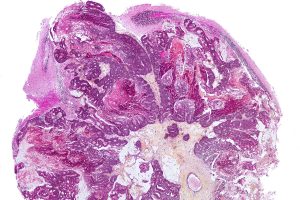In a retrospective observational cohort Martín‑Abreu et al. from the Hospital Universitario de Canarias published in the journal Cancers (Basel) to evaluate whether exposure to antiplatelet therapy reduces the incidence and delays the onset of brain metastases in patients with non‑small cell lung cancer (NSCLC). Use of antiplatelet agents—mainly aspirin—was associated with a significantly reduced incidence of brain metastases (6.9% vs. 20.0%), longer metastasis‑free interval (77.5 vs. 62.6 months), improved Progression-Free Survival, and no cases of brain metastasis among those initiating therapy post‑diagnosis 1).
Critical Review
* Strengths:
-
Large sample size (n=650) over 4 years—impressive real‑world data.
-
Statistically significant findings with p<0.001 for key outcomes.
-
Stage‑stratified analysis adds biological plausibility.
* Weaknesses/Limitations:
-
Retrospective design limits causal inference—confounding by indication is possible; patients on antiplatelet therapy were older with more comorbidities, thus inherently different.
-
No adjustment details provided for key confounders (e.g., systemic therapy, performance status, smoking status, brain imaging frequency).
-
Aspirin dose, adherence, and duration aren’t clearly reported—details crucial for replication.
-
Follow‑up duration average (~77 months) seems long for advanced NSCLC—they likely included early‑stage cases without clarifying subgroup analysis.
-
No mechanistic data; speculative statements about premetastatic niche formation and immune evasion need validation.
Final Verdict
This study delivers intriguing real‑world signals supporting the hypothesis that antiplatelet therapy, particularly aspirin, might reduce the risk or delay brain metastases in NSCLC. However, its retrospective nature, potential confounders, and lack of mechanistic clarity significantly limit its impact. Prospective, randomized trials are necessary before changing clinical practice. Meanwhile, it’s hypothesis‑generating rather than practice-changing.
Takeaway for Practicing Neurosurgeons
Be aware of emerging evidence that low‑cost, ubiquitous drugs like aspirin may modulate metastatic risk. Encourage multidisciplinary collaboration—medical oncology and neurosurgery—to monitor ongoing trials and consider stratifying patients in observational registries by antiplatelet use.
Bottom Line
⏤ Score: 5/10 – Thought‑provoking with good observational data but not definitive. ⏤ Despite interesting associations, limitations in design and confounding preclude recommending routine aspirin use solely for brain met prevention in NSCLC.
